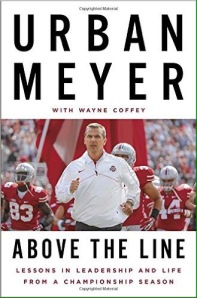
I’m a big NBA enthusiast (Go Utah Jazz!), and I’ve really enjoyed the off season period of free agency and trades. If you follow anything at all about sports, you’ve probably heard once or twice about Kevin Durant moving from the Oklahoma City Thunder to the Golden State Warriors.
The Warriors now are going to be a scoring machine, probably more so than any team in NBA history. It’s going to be something special to watch. But I came across an article yesterday that caught my eye. It centered on Klay Thompson, one of the multiple All Stars on the Warriors’ roster. With Durant joining the team, it appears that Thompson is going to get fewer scoring opportunities. Coincidentally, this may take him further out of the limelight on a team loaded with stars.
Apparently, Thompson worries nothing about this. From the story:
When asked in Vegas of the memories that fuel him, Thompson said, “I felt that feeling of winning before and I was so close again. The pain of losing is way worse than that of winning. So I just want to keep winning, man. And we’re set up hopefully not just for this year but for years after to do it, and that’s what really motivates me.”
In the high stakes and high ego world of professional sports, this stands out. But we face similar challenges regardless of our chosen area of work. We all have ego, promotion opportunities, raises, and job satisfaction to think about. To ignore those things is to invite mediocrity.
But what about the team? In sports, players like Thompson become increasingly valuable. They identify what the team needs, and apply their skills to match that need. That’s when excellence is created. It’s rare because it’s hard. It’s not easy to get everyone on the same page, accomplishing tasks, sharing credit, sharing blame, and getting the team towards its goal.
This being true, challenge yourself by answering the following questions:
- “What does my current team/project/assignment need to deliver excellent results?”
- In light of the above answers, where can I make a specific contribution immediately?
Answer those two questions, and follow up TODAY! Start delivering on that insight. Make yourself absolutely invaluable. The great paradox of recognition is that it often comes when you are motivated by rewards other than recognition.
Regarding the NBA, will Klay Thompson be as consistent in his application as he has been in his off season quotes? Time will tell. But his willingness to discuss it provides a reminder of the opportunities that lie before you and me every day.
Deliver excellence today!


